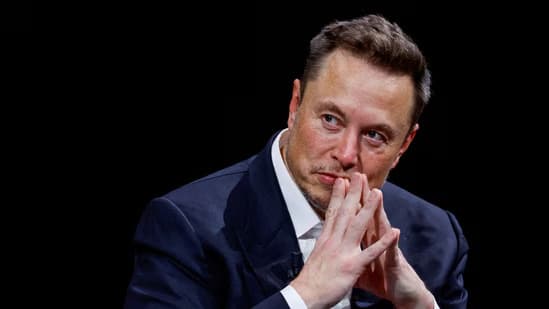
Elon Musk vs. Big Tech: Apple and OpenAI Sued in Landmark Antitrust Battle
Case accuses Apple and OpenAI of suppressing rivals and exploiting user data; outcome may set precedent for AI competition law.
Elon Musk has filed one of the most closely watched tech lawsuits of the decade, taking on Apple and OpenAI in a legal battle that could reshape how courts view competition in the emerging AI industry.
Filed on August 26, 2025, in the US District Court for the Northern District of Texas, the complaint by Musk’s companies X Corp and xAI alleges that Apple’s 2024 deal with OpenAI constitutes an illegal and exclusive arrangement that stifles innovation, blocks competitors and reinforces monopolies in two critical sectors -- smartphones and generative AI chatbots.
Legal experts say the case, if successful, could set a precedent for how antitrust law applies to AI, a sector with few legal benchmarks so far.
The Heart of Musk’s Complaint
According to court filings, the Apple-OpenAI partnership integrates OpenAI’s ChatGPT deeply into Apple’s ecosystem, including preferential App Store rankings and embedded system functionalities such as iOS integration for AI-powered search and voice assistance.
Musk’s legal team claims this arrangement:
-
Gives OpenAI exclusive access to iPhone user data and prompts, which helps train and improve ChatGPT.
-
Reduces visibility for rival apps like xAI’s chatbot Grok and the X super-app, even though Grok holds an average 4.9-star rating from over one million reviews.
-
Protects Apple’s 65% share of the US smartphone market by discouraging users from adopting third-party “super apps” that could reduce dependence on expensive iPhones.
-
Allows OpenAI to maintain around 80% control of the US chatbot market while rivals struggle to scale.
The complaint cites alleged violations of Sections 1 and 2 of the Sherman Antitrust Act -- covering conspiracy to monopolise and abuse of dominant position -- along with Texas competition laws. Musk seeks billions in damagesand a court injunction prohibiting the alleged anti-competitive conduct.
Why Texas?
The choice of Texas federal court is strategic. Musk has moved several company headquarters to Texas to avoid jurisdictions like Delaware, where Apple and OpenAI might otherwise have stronger footing. Texas courts are seen as more receptive to challenges against Big Tech’s concentrated market power.
The Bigger Picture: AI and Antitrust
Legal analysts call this a “test case” for AI regulation. The generative AI market is relatively new, and regulators have yet to fully define the boundaries of competition law within it.
Christine Bartholomew, antitrust professor at the University at Buffalo School of Law, calls the lawsuit a “canary in the coal mine” for how courts may regulate AI partnerships:
“This case isn’t just about Musk versus Apple; it’s about whether exclusive AI deals will be allowed to define the market before regulators step in.”
Other experts note parallels to the Epic Games v. Apple case, where Apple was scrutinised for restrictive App Store practices. While Epic largely lost, Musk’s team could benefit from growing regulatory attention on Apple’s market dominance.
Apple and OpenAI’s Possible Defence
Apple has not commented on the lawsuit but has previously claimed that its App Store is fair and unbiased. Legal scholars expect Apple to argue that:
-
It has no obligation to promote competitors’ apps.
-
Integration choices are legitimate business decisions driven by security, user experience and product design.
-
Other AI apps like DeepSeek and Perplexity have topped App Store rankings, suggesting there is no systemic exclusion of competitors.
OpenAI is also expected to counter that Musk’s claims are part of his long-running feud with the company. Musk co-founded OpenAI in 2015 but left in 2018, later accusing CEO Sam Altman of abandoning the nonprofit mission. He has also filed a separate lawsuit against OpenAI and Altman for allegedly prioritising profit over public interest.
What Makes This Case Complex?
Antitrust cases are notoriously challenging, and AI adds new layers of difficulty:
-
Defining the market: Courts must decide whether the AI chatbot market is distinct and monopolised or simply part of broader tech competition.
-
Evidence of harm: Musk’s team will need concrete proof that Apple’s partnership actively suppressed competition and restricted consumer choice.
-
Apple’s defence: If Apple convinces the court that the deal is a standard business arrangement or beneficial for users, Musk’s claims may falter.
Herbert Hovenkamp, an antitrust scholar at the University of Pennsylvania, notes that courts often side with tech firms if they can show their practices improve user experience or product security.
Possible Outcomes and Precedent
The lawsuit could have sweeping implications:
-
If Musk wins: Apple may be forced to open its ecosystem to multiple AI providers, reshaping how Big Tech structures partnerships. Regulators could adopt this case as a blueprint for AI antitrust enforcement.
-
If Apple wins: Exclusive AI partnerships will likely continue unchecked, leaving competition to market forces.
-
Settlement is likely: Many antitrust cases end in settlement, avoiding trial, but even negotiations could influence how tech firms approach future deals.
Why It Matters Globally
The case comes amid heightened scrutiny of Big Tech worldwide. The EU is enforcing its Digital Markets Act (DMA), and US regulators have lawsuits pending against Apple, Google and Amazon over monopoly allegations.
For Musk, victory could position xAI’s Grok as a viable alternative to ChatGPT and elevate his “super app” vision, potentially challenging Apple’s hardware-first business model.
For the AI industry, the case could determine whether courts treat AI integration as an essential facility -- requiring open access -- or a proprietary feature firms can control exclusively.
Bottom Line:
Musk’s lawsuit is more than a billionaire’s feud -- it’s a bellwether for how law, technology and market power will collide in the AI era. With years of litigation likely, the outcome could reshape both smartphone ecosystemsand AI competition worldwide.
For any enquiries please fill out this form, or contact info@thelawreporters.com Follow The Law Reporters on WhatsApp Channels